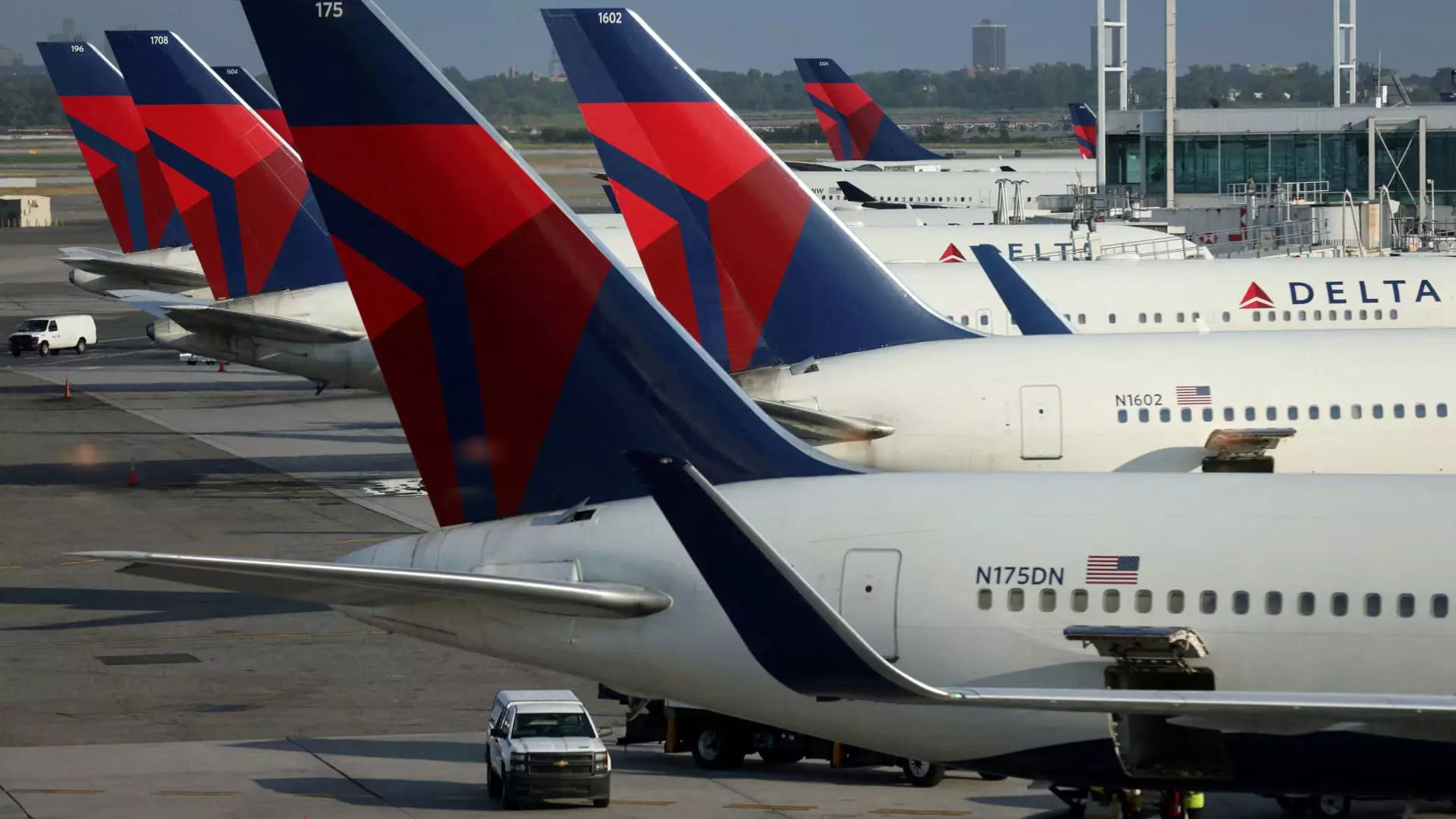In a major development in the tech and aviation sectors, Delta Air Lines has initiated a lawsuit against cybersecurity company CrowdStrike, following a disastrous software outage in July. This outage severely disrupted operations, leading to the cancellation of more than 7,000 flights and affecting millions of computers utilized by the airline. The repercussions of this incident were staggering, with Delta reporting a staggering revenue loss of $380 million alongside additional costs amounting to $170 million, igniting a firestorm of liability claims focused on the software vendor.
Delta’s lawsuit, filed in Georgia, claims that CrowdStrike breached its contract and acted negligently by deploying a flawed software update that impacted systems running Microsoft’s Windows OS. The airline argues that other carriers were able to navigate the interruption more swiftly, highlighting a sense of failure on CrowdStrike’s part. Delta emphasized that the faulty software update, which had allegedly bypassed essential testing protocols, should never have reached their systems. This has led to a broader conversation regarding the accountability of tech companies in maintaining operational integrity and prioritizing customer livelihoods.
Delta’s complaint highlighted a critical issue related to software testing and compliance. They indicated that had CrowdStrike performed even basic testing on the software update before its release, the catastrophic failure could have been averted. This breach not only questions the efficacy of CrowdStrike’s internal processes but also reflects on the company’s marketing promises regarding their software’s reliability. Delta expressed disappointment over the apparent shortcuts taken by CrowdStrike, exacerbating the fallout of the disaster.
CrowdStrike’s CEO George Kurtz has publicly acknowledged the incident, apologizing and committing to reforming practices to mitigate the risk of similar occurrences. Their admission raises urgent questions about the company’s infrastructure for handling updates and client systems. Furthermore, the situation has led to ramifications beyond Delta, prompting Microsoft to engage in discussions with CrowdStrike and other security software vendors about potential enhancements to prevent future issues.
This incident serves as an alarming reminder of the vulnerabilities inherent in the intersection of technology and critical infrastructure industries. With aviation heavily dependent on robust software systems, the consequences of failures in such technologies are magnified, affecting not only corporate bottom lines but also public safety and customer trust. The legal proceedings initiated by Delta Air Lines against CrowdStrike may hold significant lessons for both tech providers and industries reliant on their products—a clarion call for increased rigor in software testing standards and corporate accountability. As Delta seeks damages for its losses, the outcome might establish new precedents regarding the responsibilities of tech companies to their clients and the broader public.


Leave a Reply